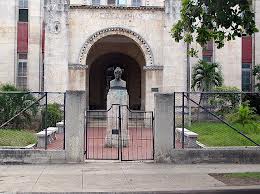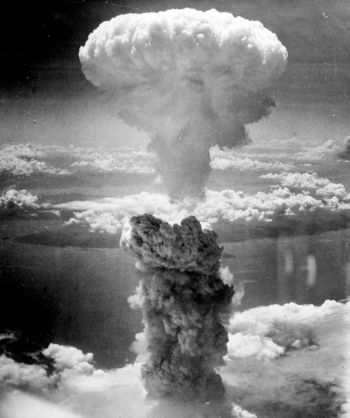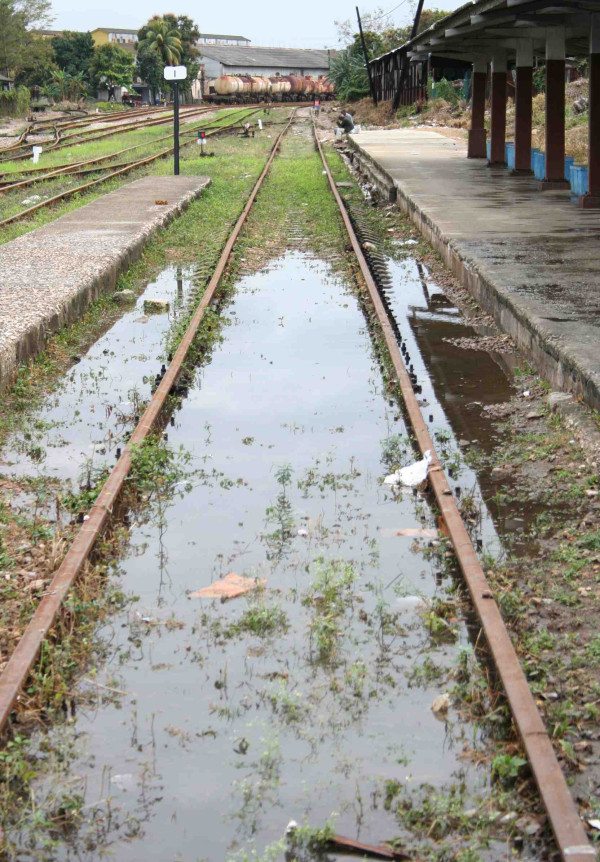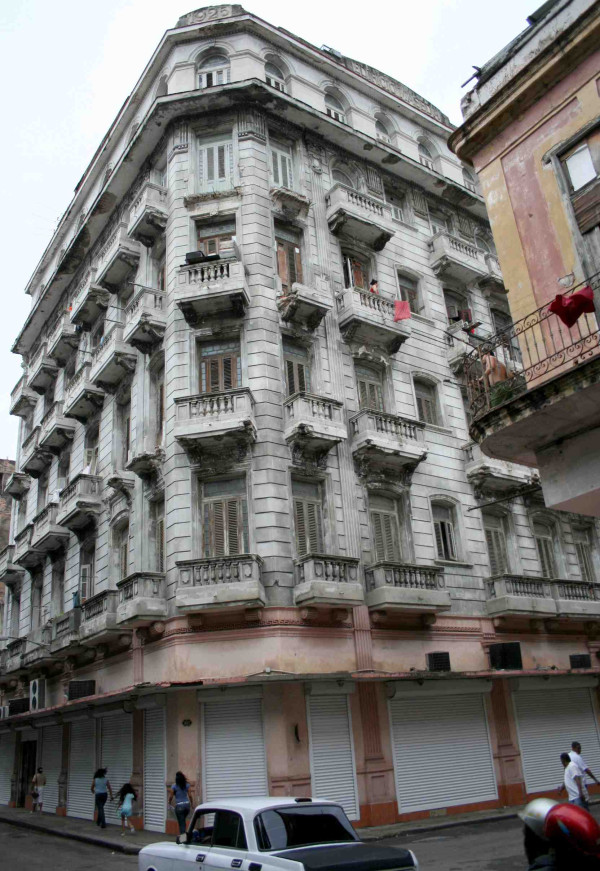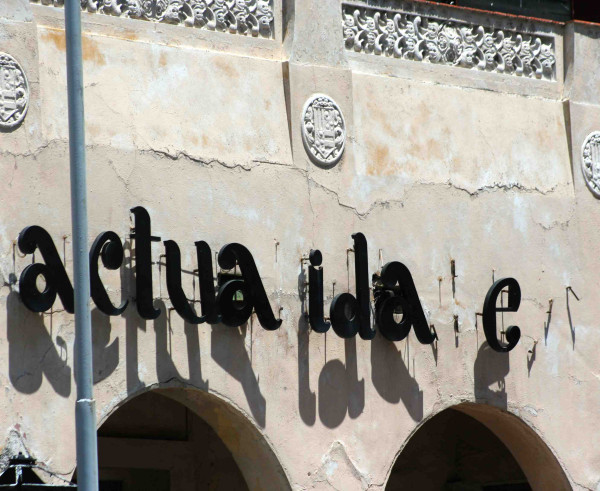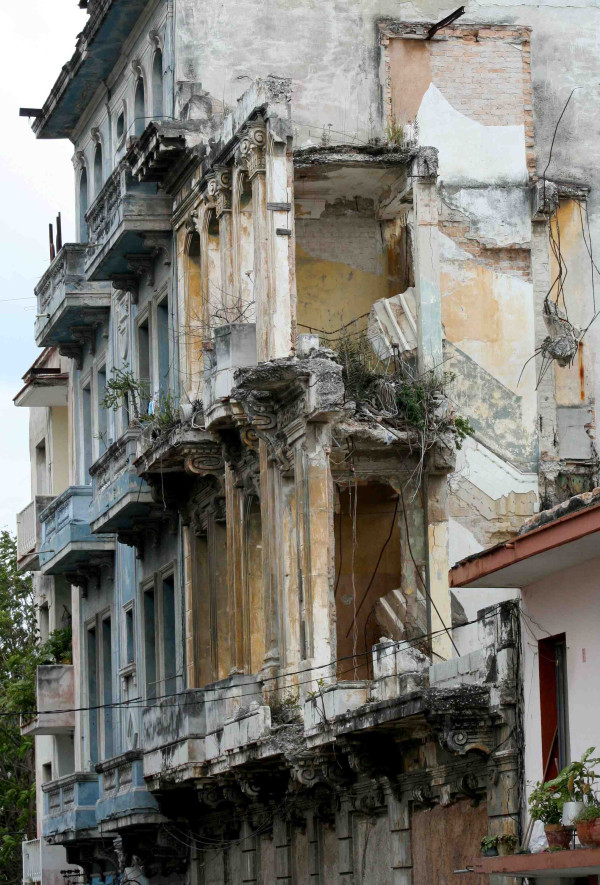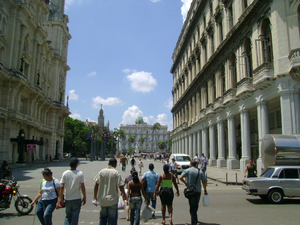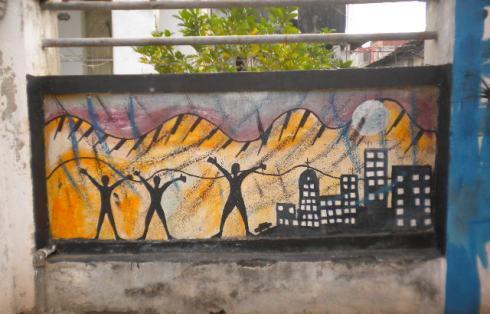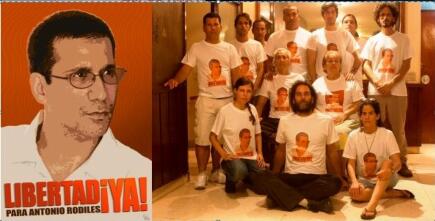
URGENT ACTION
CUBAN MAN TARGETED FOR GOVERNMENT CRITICISM
Government critic Antonio Rodiles has been charged with “resisting authority”. It is believed the charges may be used to punish and prevent his peaceful criticism of Cuban government policies.
A coordinator of a civil society initiative calling on the government to ratify international human rights treaties, Antonio Rodiles, has been charged with “resisting authority” (resistencia). He has been placed in pre-trial detention (prisión provisional), but no date has been set for his trial.
Shortly after the arrest of the independent lawyer and journalist Yaremis Flores on 7 November, Antonio Rodiles, his wife and several other government critics went to the Department of State Security headquarters, know as Section 21 (i) in the neighbourhood of Marianao in Havana, to enquire after her whereabouts. Before they could reach the building they were approached by 20 people, all plain-clothed, as two officials from the Ministry of the Interior looked on. Antonio Rodiles was reportedly knocked to the ground and pinned down by four men. Several of the other activists were also manhandled and were forced into a police vehicle and sent to various police stations around Havana. All were released by 11 November, except Antonio Rodiles.
The Public Prosecutor’s Office (fiscalía) informed Antonio Rodiles’ wife on 14 November that he was being charged with “resisting authority” but a formal charge document has yet to be issued.
Antonio Rodiles is one of the coordinators of Citizen Demand for Another Cuba (Demanda Ciudadana Por Otra Cuba), an initiative calling for Cuba to ratify the International Covenant on Civil and Political Rights, as well as the International Covenant on Economic, Social and Cultural Rights, which the country signed in 2008. Amnesty International believes the charges against him may be being used to punish and prevent his peaceful activities as a government critic and is gathering further information on his case and treatment.
Please write immediately in Spanish or your own language:
- Calling on the Cuban authorities to release Antonio Rodiles immediately and unconditionally if they are unable to substantiate the charges against him, and to investigate reports that he was ill-treated during his arrest;
- Calling on them to immediately cease the harassment of all other citizens who peacefully exercise their rights to freedom of expression and association.Please write immediately in Spanish or your own language:
- Calling on the Cuban authorities to release Antonio Rodiles immediately and unconditionally if they are unable to substantiate the charges against him, and to investigate reports that he was ill-treated during his arrest;
- Calling on them to immediately cease the harassment of all other citizens who peacefully exercise their rights to freedom of expression and association.
PLEASE SEND APPEALS BEFORE 27 DECEMBER 2012 TO:
Head of State and Government
Raúl Castro Ruz
Presidente de la República de Cuba
La Habana, Cuba
Fax: +41 22 758 9431 (Cuba office in
Geneva); +1 212 779 1697 (via Cuban
Mission to UN)
Email: cuba@un.int (c/o Cuban Mission
to UN)
Salutation: Your Excellency
Attorney General
Dr. Darío Delgado Cura
Fiscal General de la República,
Fiscalía General de la República,
Amistad 552, e/Monte y Estrella,
Centro Habana,
La Habana, Cuba
Salutation: Dear Attorney General
And copies to:
Interior Minister
General Abelardo Coloma Ibarra
Ministro del Interior y Prisiones
Ministerio del Interior,
Plaza de la Revolución,
La Habana, Cuba
Fax: +1 212 779 1697 (via Cuban
Mission to UN)
Email: correominint@mn.mn.co.cu
Salutation: Your Excellency
Also send copies to diplomatic representatives accredited to your country
Please check with your section office if sending appeals after the above date.
ADDITIONAL INFORMATION
Journalist Yaremis Flores was held for 48 hours before being released without charge. During her detention she and was threatened with charges of “disseminating false information against international peace” (difusión de noticias falsas contra la paz internacional), which carries a prison sentence of one to four years, if she continued her work as a journalist.
Antonio Rodiles has been charged under Article 143 of the Cuban Criminal Code. This covers the offence of resistencia, which refers to resistance to public officials carrying out their duties and is often used to deal with alleged cases of resisting arrest.
Article 143 is broad enough to encompass non-violent forms of resistance; it is sometimes used in ways that unlawfully restrict freedom of expression.
On 20 June, Citizen Demand for Another Cuba handed in a petition with 500 signatures to the National Assembly of People’s Power (Asamblea Nacional del Poder Popular) – Cuba’s legislative body located in Havana – calling on the government to ratify the International Covenant on Civil and Political Rights and the International Covenant on Economic, Social and Cultural Rights.
Along with the Universal Declaration of Human Rights, these covenants constitute the International Bill of Rights and are the key international human rights instruments. Since Cuba’s signing of both covenants in 2008, Amnesty International has called on the authorities to ratify them in order to bring them into force and begin their implementation.
Antonio Rodiles is also the coordinator of State of SATS (Estado de SATS), a forum which emerged in July 2010 to encourage debate on social, cultural and political issues.
Name: Antonio Rodiles
Gender : m
UA: 333/12 Index: AMR 25/026/2012 Issue Date: 15 November 2012

